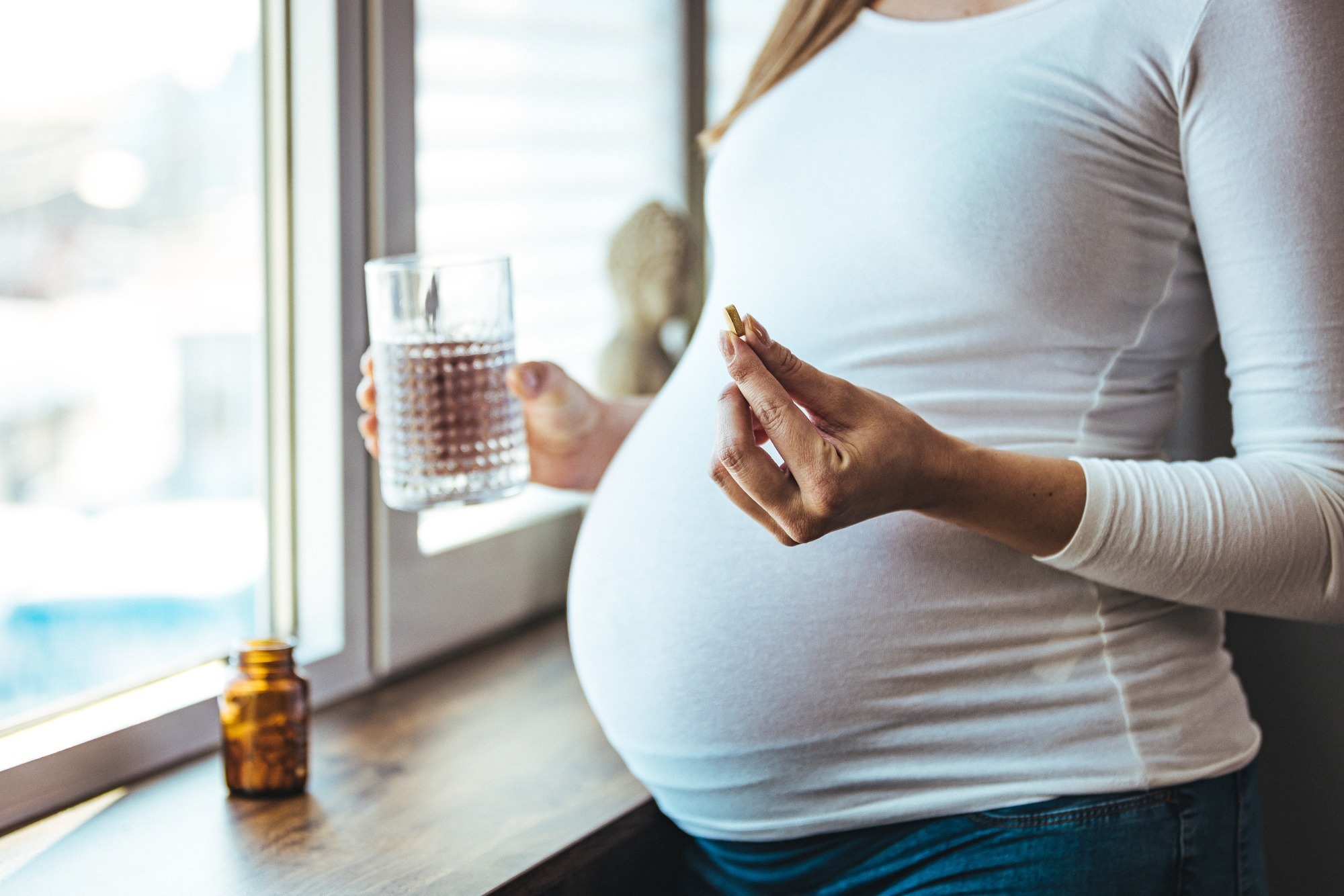Pregnancy is a period of high nutrient demand for the mother, who supports her own metabolism as well as that of a growing fetus. As a result, many clinicians will prescribe pregnant women supplements to prevent nutrient deficiencies.
 Study: Effects of nutritional supplements on antibody levels in pregnant women vaccinated with inactivated SARS-CoV-2 vaccines. Image Credit: Dragana Gordic / Shutterstock.com
Study: Effects of nutritional supplements on antibody levels in pregnant women vaccinated with inactivated SARS-CoV-2 vaccines. Image Credit: Dragana Gordic / Shutterstock.com

 *Important notice: medRxiv publishes preliminary scientific reports that are not peer-reviewed and, therefore, should not be regarded as conclusive, guide clinical practice/health-related behavior, or treated as established information.
*Important notice: medRxiv publishes preliminary scientific reports that are not peer-reviewed and, therefore, should not be regarded as conclusive, guide clinical practice/health-related behavior, or treated as established information.
Introduction
The coronavirus disease 2019 (COVID-19) vaccines were introduced to help prevent deaths and disease following SARS-CoV-2 infection. Early on in the pandemic, pregnancy was identified as a risk factor for severe COVID-19. However, this patient population has not been included in any clinical trials of COVID-19 vaccines, thus making it difficult to fully evaluate the efficacy or safety of these vaccines in pregnant women.
There remains a lack of research on the effects of nutritional supplements such as iron, folic acid, and antioxidants on the immune response to COVID-19 vaccines. The current study sought to examine the potential increase in immunity following vaccination of pregnant women taking nutritional supplements.
During pregnancy, folic acid is essential to reduce the risk of neural tube defects, preeclampsia, and preterm birth. Iron supplements are routinely prescribed in many low-income communities and regions to combat the risk of iron-deficiency anemia (IDA) and ensure the presence of a proper reserve of iron in the body.
IDA is among the most common complications of pregnancy. Furthermore, IDA increases the risk of hemorrhage during and after labor and delivery, as well as preterm birth and low birth weight. Recent studies have also reported that IDA during pregnancy increases the risk of COVID-19.
Docosahexaenoic acid (DHA) is also crucial for the development of the central nervous system, thus promoting fetal intelligence and vision, in addition to its immunomodulatory effects.
What did the study show?
The current study included 873 pregnant women between 18 and 45 years of age in Guangdong, China. Approximately 95% of the study cohort took folic acid supplements during their pregnancies, whereas 18.9% each took iron and DHA. All women in the study cohort received one or more doses of the inactivated COVID-19 vaccine, with about 45% seropositive for neutralizing and immunoglobulin G (IgG) antibodies, respectively.
Women taking folic acid were more likely to be experiencing their first pregnancy and have a junior college education. The likelihood of being seropositive for neutralizing antibodies (NAbs) was determined by the number of vaccine doses and time since vaccination. For IgG positivity, the odds varied with the age, vaccine doses, and time since vaccination, as well as the incidence of adverse events.
Iron and DHA supplementation was almost universal at 95% or more in women who did not smoke and exercised three or more times every week. Seropositivity for either NAbs or IgG in women who took iron supplements changed with vaccine doses. In the DHA group, seropositivity varied with the number of prior pregnancies, time since vaccination, and vaccine doses.
After accounting for confounding factors, NAbs and IgG levels were equally distributed between the groups, irrespective of nutritional supplementation with any of the three mentioned above. Women who took or did not take supplements also varied in the time since vaccination, as well as the presence of anti-SARS-CoV-2 NAbs and IgG.
The present study showed no association between supplementation during pregnancy and antibody levels in pregnant women who received inactivated SARS-CoV-2 vaccines.”
What are the implications?
Earlier research indicates better persistence of antibodies to hepatitis B virus surface antigens in the fetus in women taking folic acid during pregnancy. However, this difference may be due to variations in the vaccine dosage and economic status of the participants, among other factors.
Another African study reported a lack of correlation between supplements in pregnancy and the immune response to the rotavirus vaccine. In contrast, IDA is associated with a reduced response to diphtheria, pertussis, and pneumococcal vaccination in infants, whereas iron supplementation enhances the response to the measles vaccine.
The current study uses real-world data and examines seropositivity in pregnant women rather than fetuses or infants whose immunological systems may function differently. This may account for some of the variability in the results from prior studies.
To overcome these biases, baseline measurements of nutritional supplements in the first trimester, as well as following supplementation with additional nutrients like vitamin D, zinc, and calcium, may be needed. This data will help improve current recommendations for nutritional supplementation during pregnancy.

 *Important notice: medRxiv publishes preliminary scientific reports that are not peer-reviewed and, therefore, should not be regarded as conclusive, guide clinical practice/health-related behavior, or treated as established information.
*Important notice: medRxiv publishes preliminary scientific reports that are not peer-reviewed and, therefore, should not be regarded as conclusive, guide clinical practice/health-related behavior, or treated as established information.